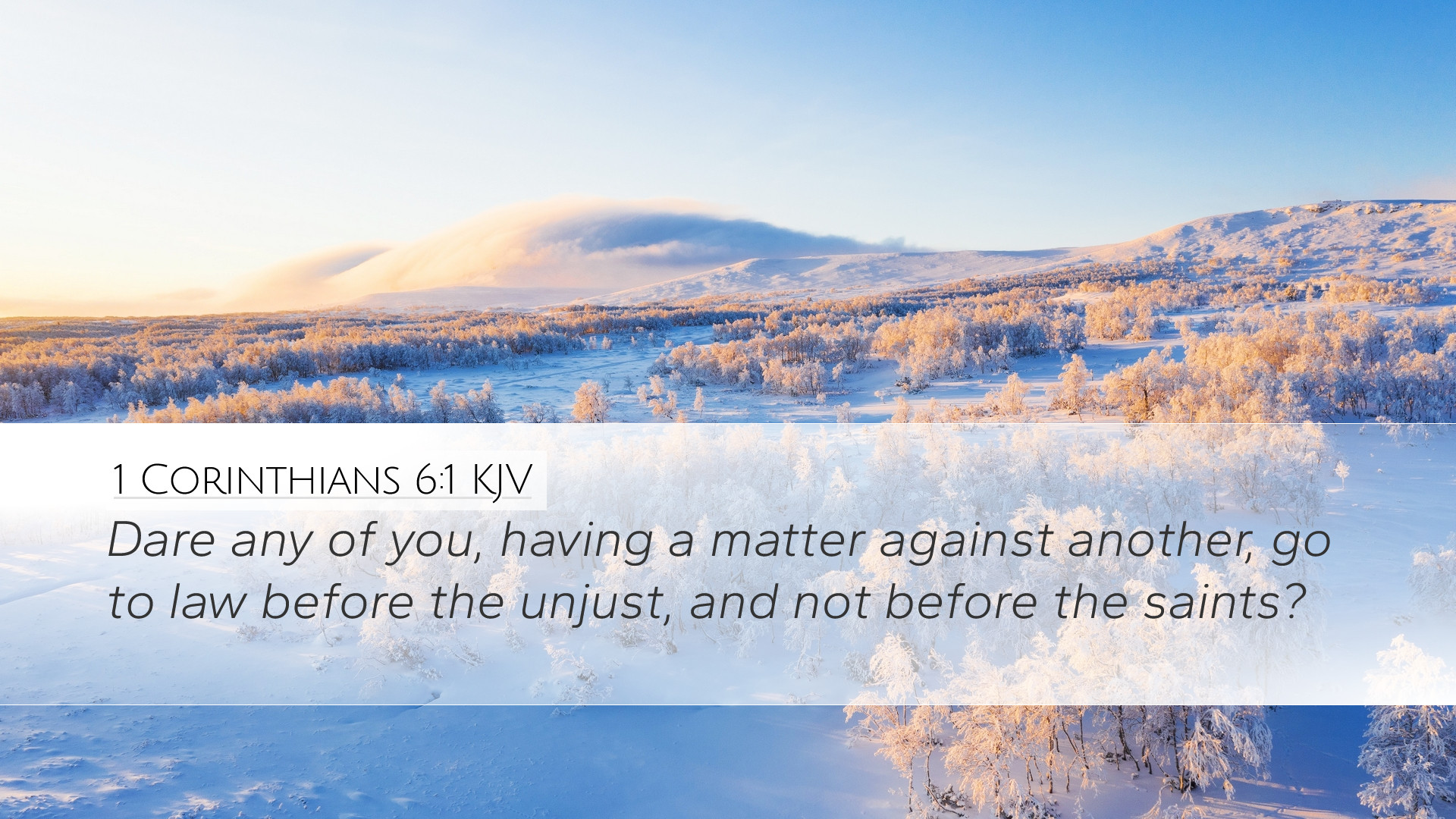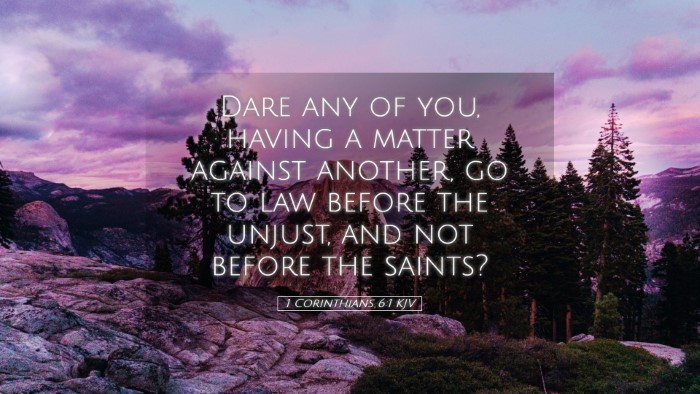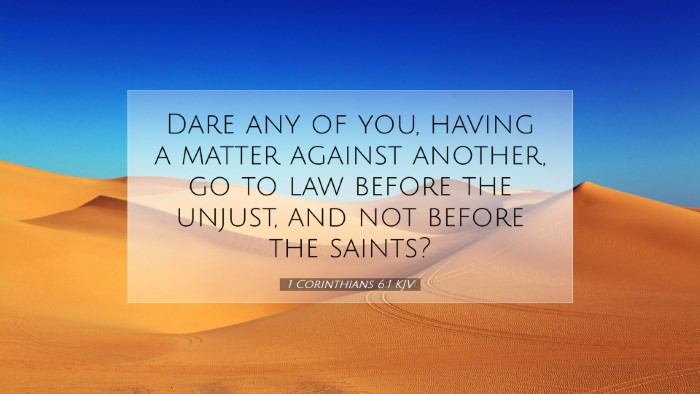Commentary on 1 Corinthians 6:1
Verse Text: "Dare any of you, having a matter against another, go to law before the unjust, and not before the saints?"
Introduction
The Apostle Paul addresses the issue of litigation among believers in this verse, juxtaposing the secular legal system against the community of faith. This commentary synthesizes insights from historical theological perspectives, emphasizing the spiritual implications of the matter. Each commentator brings forth a unique understanding that sheds light on the tension between earthly justice and divine order.
Insights from Public Domain Commentaries
Matthew Henry
Matthew Henry lays a strong foundation by noting that the term "dare" used by Paul signals a serious concern regarding the faith and character of church members. He emphasizes that believers are called to a higher standard, one that supersedes worldly practices. Henry argues that engaging in civil lawsuits undermines the witness of the church and the transformative power of the gospel. He points out:
- Disgrace to the Gospel: It brings disgrace upon the community of believers when disputes are settled in secular courts.
- Calling of Saints: Saints, as those sanctified by God, should exemplify wisdom that surpasses that of worldly judges.
- Conflict Resolution: Henry encourages believers to seek amicable solutions within the church, promoting unity and love over litigation.
Albert Barnes
Albert Barnes reinforces Paul's exhortation by situating it within the Corinthian context of moral disarray and division. He raises critical points that challenge contemporary understanding of justice and community engagement:
- Judgment Among Saints: Barnes articulates that the saints will one day judge the world, suggesting that there exists a superiority in their moral understanding.
- Systemic Challenges: He discusses the influence of Greco-Roman culture on the Corinthian church, cautioning against their litigation habits as emblematic of carnal behavior.
- Encouragement for Unity: Believers are reminded of their identity in Christ, which ought to transcend personal grievances.
Adam Clarke
Adam Clarke provides a thorough exegesis on the implications of the term "unjust" and interprets the broader ethical and community dilemmas inherent in legal disputes among Christians. His perspectives emphasize:
- Character of Judges: Clarke notes that secular judges lack the moral compass that believers should possess. He argues that Christians should recognize their spiritual authority and seek resolution internally.
- The Role of the Church: He posits that the church must act as the arbiter of disputes, fostering an environment where forgiveness prevails over conflict.
- Case for Mediation: Clarke advocates for mediation and reconciliation within the community, viewing litigation as a last resort that disrupts the peace of the church.
Theological Implications
The insights garnered from these commentators collectively urge a re-examination of how Christians engage with secular judicial systems. The underlying message is not merely about legal conduct; it emphasizes a deeper moral and ethical obligation to uphold a community characterized by love, forgiveness, and mutual support.
Practical Applications
- Conflict Resolution Training: Churches should provide education on conflict resolution rooted in biblical principles to equip members with the tools necessary for resolving disputes internally.
- Encouragement of Mediation: Establish a framework for mediated discussions led by mature Christians to address grievances without resorting to legal action.
- Fostering Relationships: Build a culture within the church that prioritizes relationships over legalities, encouraging transparency and communication among congregants.
Conclusion
In sum, 1 Corinthians 6:1 challenges believers to reflect on their practices in light of their identity in Christ. As evident in the works of Henry, Barnes, and Clarke, the pursuit of justice among Christians is not only a matter of legal obligation but also a testament to their faith and unity. By choosing to resolve conflicts within the body of Christ, believers mirror the reconciliation they have received through the gospel, thus becoming powerful witnesses to the world around them.


